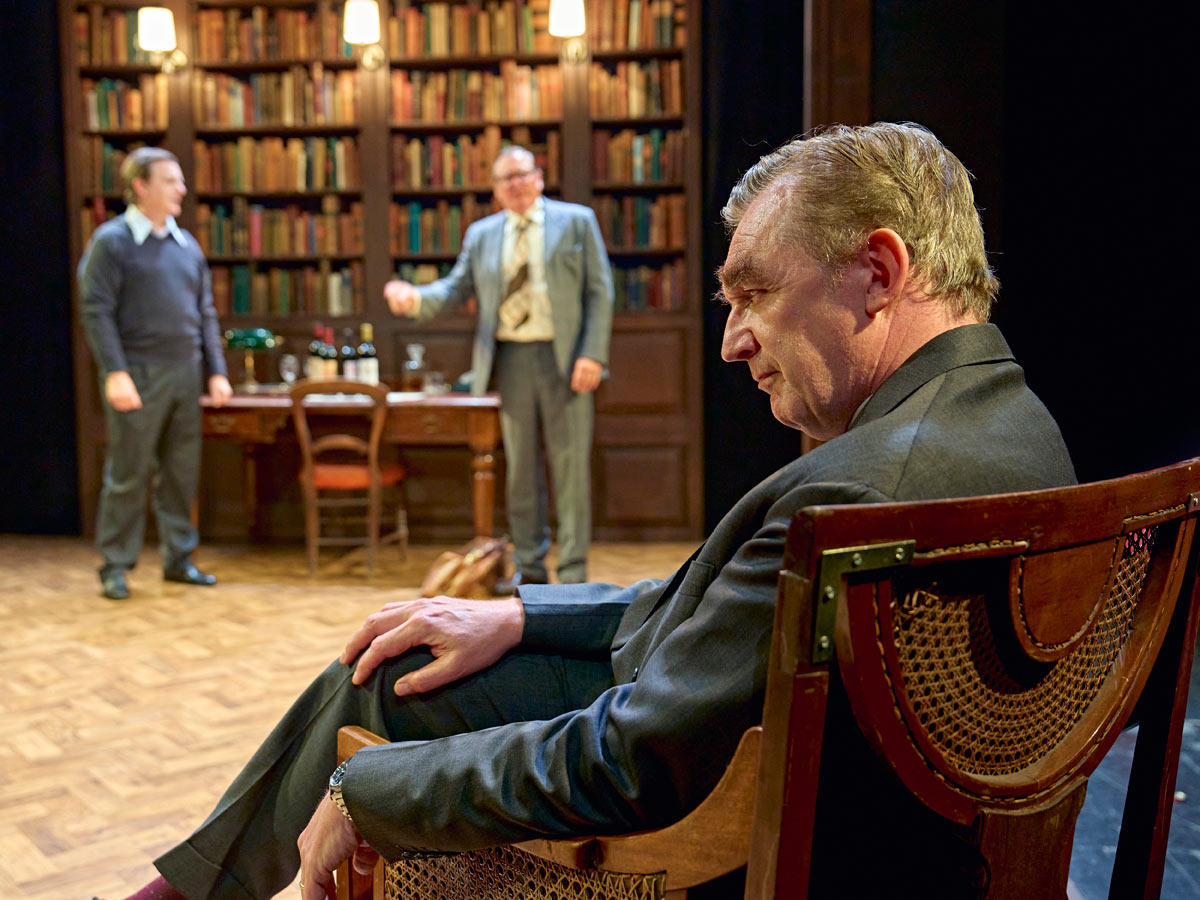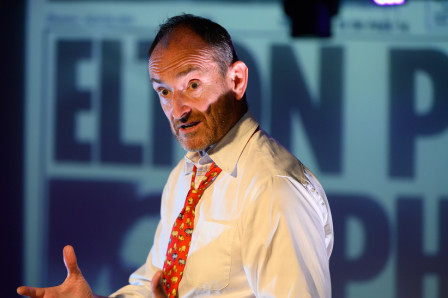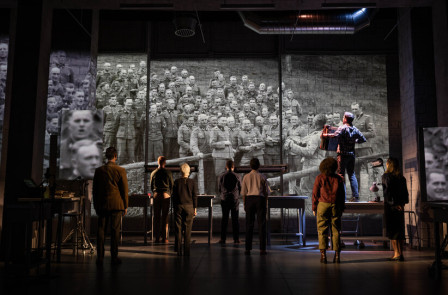Review: THE GANG OF THREE at King’s Head
Before Thatcher’s hooray Henry capitalism, before Blair’s Brit-pop socialism, there were Oxford educated centre-left politicos who bestrode the land looking every bit a potential future PM as Labour’s pipe-smoking Harold Wilson or his Tory counterpart, the yacht-sailing Ted Heath.
 Gang Of Three - Alan Cox, Hywel Morgan, Colin Tierney - photographer Manuel Harlan
Gang Of Three - Alan Cox, Hywel Morgan, Colin Tierney - photographer Manuel Harlan
We’re in the early 1970s and key figures in Labour’s ranks, Roy Jenkins (Hywel Morgan), Denis Healey (Colin Tierney) and Anthony Crosland (Alan Cox) are engaged in back room political jockeying and deal-making. Jenkins’ long held belief that the UK’s future would be at the heart of Europe and the EEC, has fallen foul of anti-European sentiment within the party and he has resigned the deputy leadership as a matter of principle. But is it a cunning tactical ploy aimed at ultimately securing the top job? Wilson had narrowly squeezed a surprise victory at the 1974 General Election, but having confirmed the UK’s membership of the EEC, tendered his surprise resignation in early April two years later, triggering a leadership election which would decide who would reside at No10. Crosland with his easy charisma, believes he can persuade his chums and likely adversaries, that only one of them should stand against the Marxists who have been gaining strength within the party. But when each of them believes that they are the man for the job and refuses to step aside, the lack of consensus (even after they’ve drawn lots to decide the matter) leaves the door open for another successor.
THE GANG OF THREE as directed by Kirsty Patrick Ward, is one of those rare beasts nowadays - a political snap shot in time, which only audience members of a certain age will recall. The writers Robert Khan and Tom Salinsky have form in this sphere, having previously penned plays entitled Coalition, Brexit and Kingmaker. Here, the dialogue — save for the occasional ribald epithet — is punchy and cerebral and whilst it only occasionally ascends to the dizzying heights of Yes Minister (to which it undoubtedly pays homage), there is something joyously pleasurable in being permitted to voyeuristically feast upon the intellectual cut and thrust. Each of the three players deliver a convincing essence of their respective parts, rather than dabbling in overt caricature, which helps the audience focus on the terse and pithy dialogue. If only the squabbling trio had realised the ultimate result of their often fractious bargaining over G&Ts in their respective offices and libraries. In these spaces adorned with leather bound books and Chesterton sofas, (set by Libby Watson), Margaret Thatcher’s name is only ever mentioned once during proceedings. She would most surely have chuckled into her Cornflakes.
As a point of interest, it is noted in the programme that Robert Khan, having previously served as an Islington councillor and the Borough’s Arts Champion, is currently chair of the King’s Head theatre. Kudos.
Latest News

 Beatrice Penny-Touré to join West End production of THE PHANTOM OF THE OPERA
6 February 2026 at 13:59
Beatrice Penny-Touré to join West End production of THE PHANTOM OF THE OPERA
6 February 2026 at 13:59

 Initial cast and creative team for ROSIE A NEW MUSICAL West End premiere concert
6 February 2026 at 10:02
Initial cast and creative team for ROSIE A NEW MUSICAL West End premiere concert
6 February 2026 at 10:02

 Review: MONSTERING THE ROCKETMAN at Arcola Theatre
6 February 2026 at 09:01
Review: MONSTERING THE ROCKETMAN at Arcola Theatre
6 February 2026 at 09:01

 HERE THERE ARE BLUEBERRIES at Stratford East - First look images released
5 February 2026 at 15:35
HERE THERE ARE BLUEBERRIES at Stratford East - First look images released
5 February 2026 at 15:35